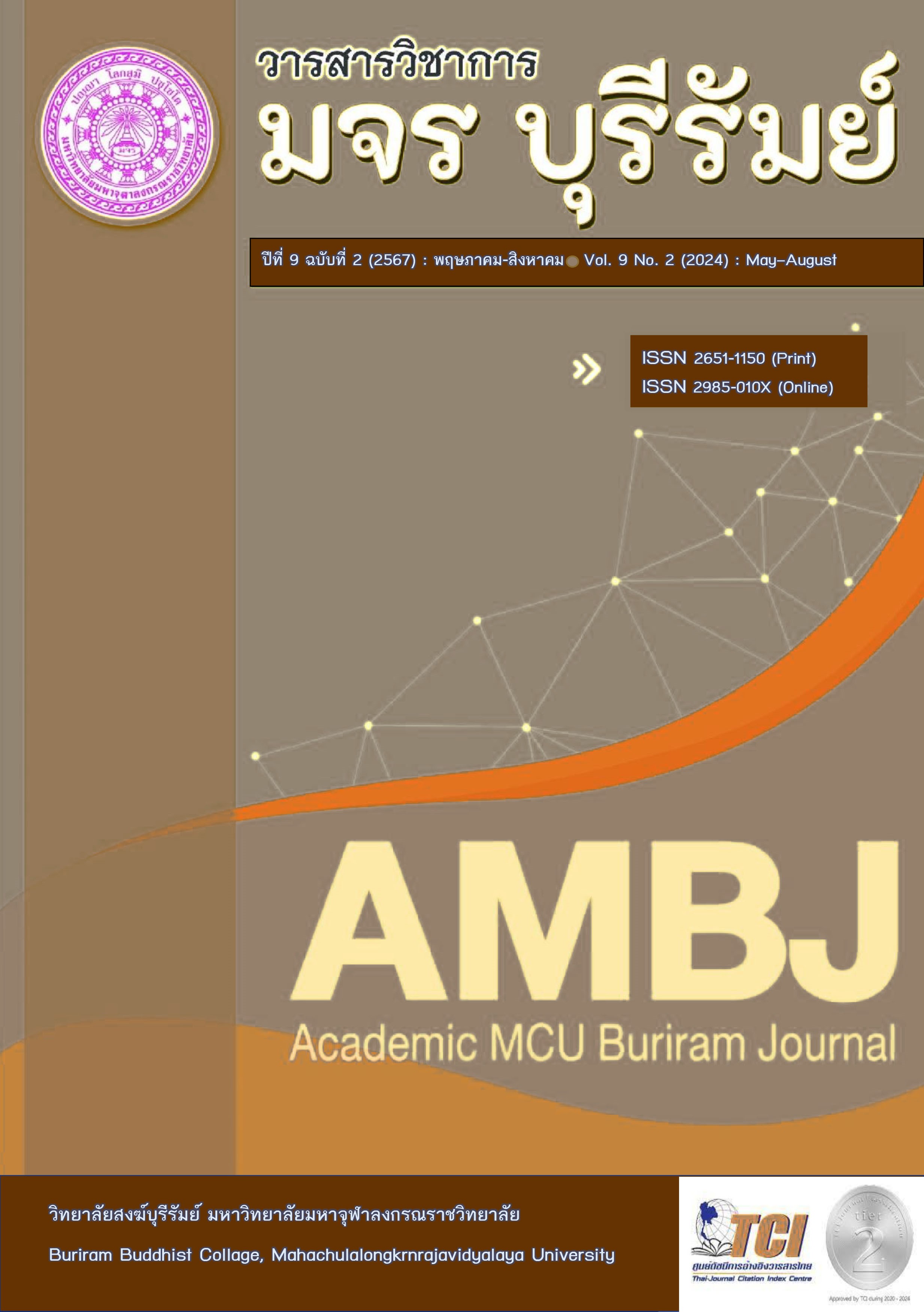A Buddhist Hermeneutics of Buddhadasa Bhikkhu for the Wisdom Well-being Development
Keywords:
Buddhist Hermeneutics, Buddhadasa Bhikkhu, Development, Wisdom Well-beingAbstract
This academic article aims to find out what is the Buddhist commentary of Bhikkhu Buddha for the development of intellectual well-being. Bhikkhu Buddha aims to teach non-clinging, withdrawing one's own existence. He pointed out the process of developing human intellectual well-being related to the communication apparatus and the cognitive process of life through the key mechanisms of the mind. If the tool is allowed to work according to the power of instinct, it will result in harm to life. If we have judgment with mindfulness, concentration, and wisdom, as a tool for us to experience everything knowingly, we will be able to do so. Seeing the moral conditions of that thing and treating fellow human beings with morality, which will make society coexist peacefully. Therefore, he used the method of interpreting Buddhist doctrines (Buddha's Commentary) to make the religious realize the true truth that each religion needs. By studying through the theory of human language, the language of the Dharma, so that all parties can understand the heart of religion correctly.
References
พุทธทาสภิกขุ. (2526). อะไร คืออะไร. กรุงเทพมหานคร: ธรรมทานมูลนิธิ.
พุทธทาสภิกขุ. (2528). ใจความแห่งคริสตธรรมเท่าที่ชาวพุทธควรทราบ. หนังสือชุดธรรมโฆษ หมวดที่ 5. กรุงเทพมหานคร: ธรรมทานมูลนิธิ.
พุทธทาสภิกขุ. (2549). ปณิธาน 3 ประการของพุทธทาสภิกขุ. กรุงเทพมหานคร: สำนักพิมพ์ธรรมสภา.
พุทธทาสภิกขุ. (2542). ภาษาคน ภาษาธรรม. กรุงเทพมหานคร: สำนักพิมพ์สุขภาพใจ.
พระพรหมคุณาภรณ์ (ป.อ.ปยุตฺโต). (2558). พจนานุกรมพุทธศาสตร์ ฉบับประมวลธรรม. พิมพ์ครั้งที่ 12. กรุงเทพมหานคร: สำนักพพิมพ์ผลิธัมม์.
พระพรหมคุณาภรณ์ (ป.อ.ปยุตฺโต). (2546). พจนานุกรมพุทธศาสตร์ ฉบับประมวลธรรม. พิมพ์ครั้งที่ 32. กรุงเทพมหานคร: สำนักพพิมพ์ผลิธัมม์.
วีรชาติ นิ่มอนงค์. (2552). การศึกษาวิเคราะห์ทฤษฎีอรรถปริวรรตศาสตร์ในคัมภีร์พระพุทธศาสนาเถรวาท. กรุงเทพมหานคร: มหาวิทยาลัยมหาจุฬาลงกรณราชวิทยาลัย.
สมบูรณ์ บุญโท. (2553). การศึกษาวิธีสอนของพระพุทธเจ้า. กรุงเทพมหานคร: สวนโลก-สวนธรรม.
Eric Schmidt and Jared Cohen. (2557). ดิจิทัลเปลี่ยนโลก. แปลโดย สุทธวิชญ์ แสงดาษดา. กรุงเทพมหานคร: โพสต์ พับลิซซิง 21.
Jackson, Peter A. (1998). Buddhadasa: A Buddhist Thinker for the Modern World. Bangkok: The Siam Society.
Downloads
Published
How to Cite
Issue
Section
License
Copyright (c) 2024 Academic MCU Buriram Journal

This work is licensed under a Creative Commons Attribution-NonCommercial-NoDerivatives 4.0 International License.
ทัศนะและความคิดเห็นที่ปรากฏในบทความวารสารฉบับนี้ถือเป็นความรับผิดชอบของผู้เขียนบทความนั้น ไม่ถือเป็นทัศนะและความรับผิดชอบของบรรณาธิการ





